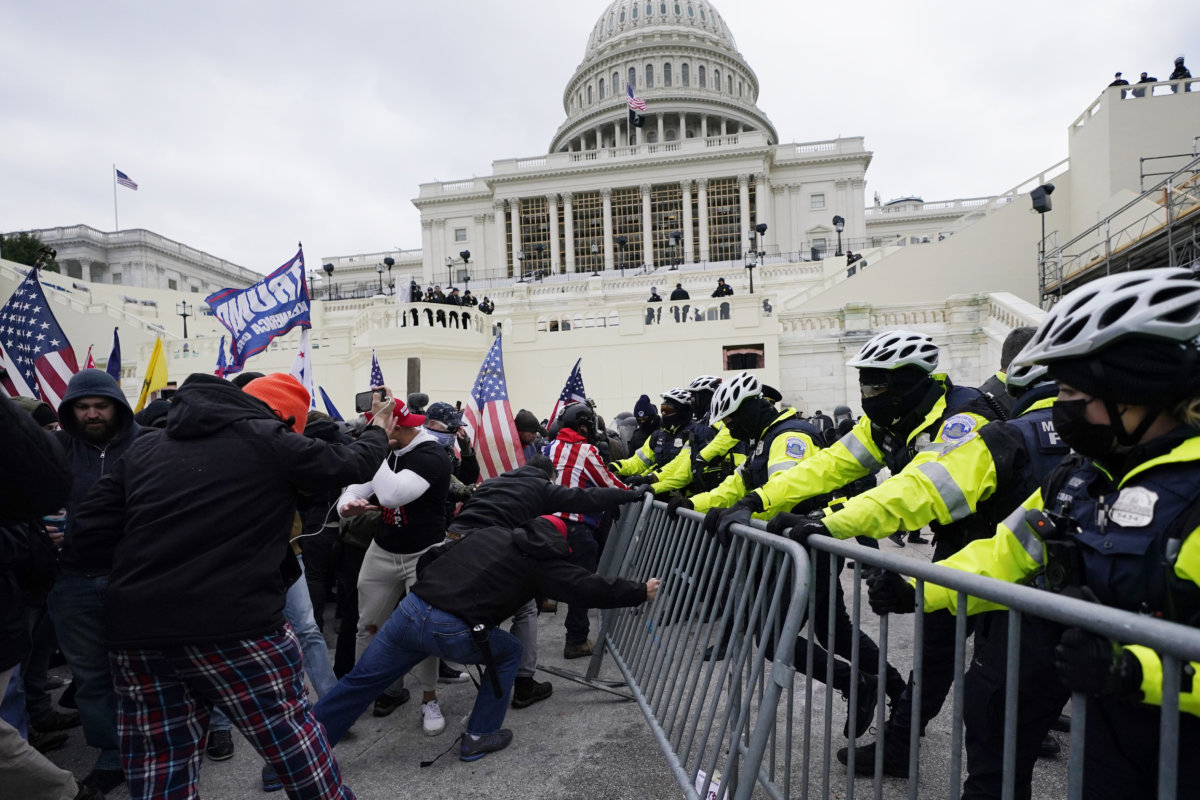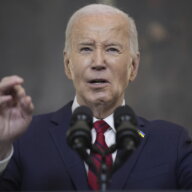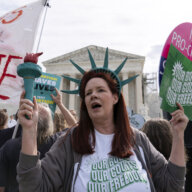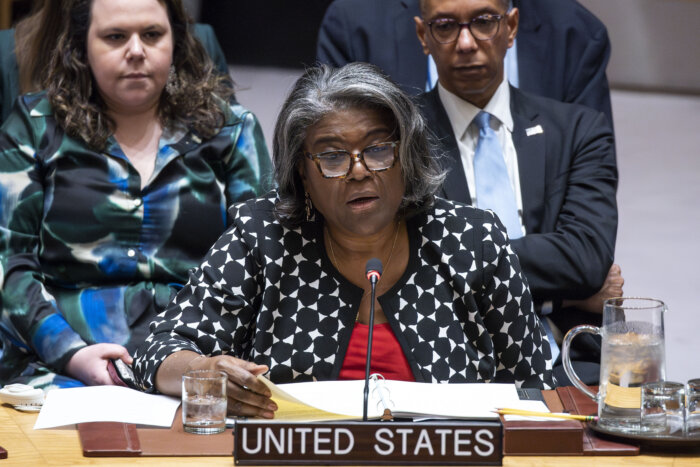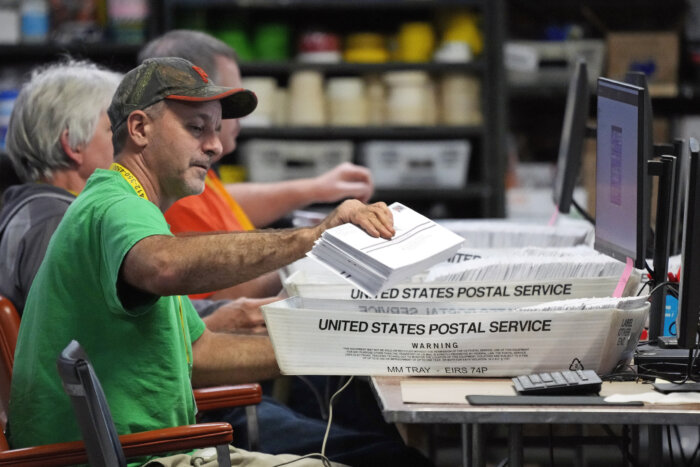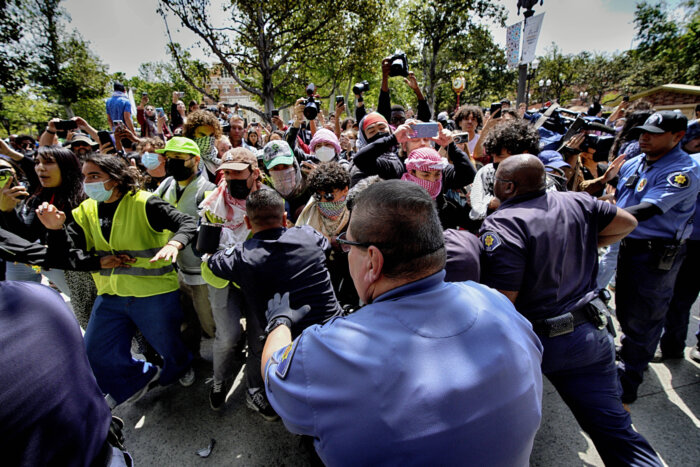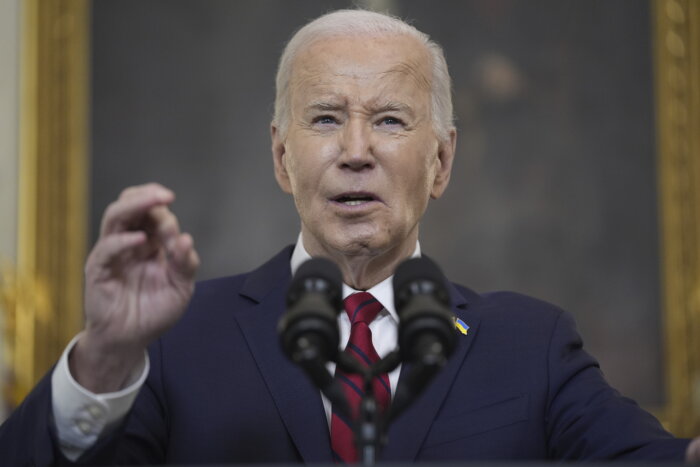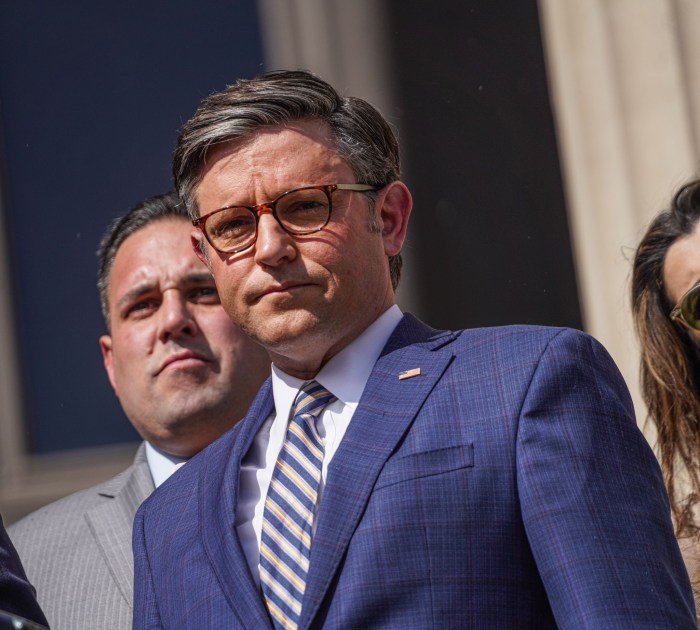By CALVIN WOODWARD Associated Press
Americans are processing the nightmare of the slaughter of children in Texas, the racist murders in Buffalo, New York, and the other numbingly repeated scenes of carnage in the United States.
They’re contending with what feels like highway robbery at the gas pump, they’re nagged by a virus that the world can’t shake, and they’re split into two hostile camps over politics and culture — the twin pillars of the nation’s foundation.
They’ve already been through two set-piece dramas of presidential impeachment — indeed, through the wringer on all things Donald Trump.
Now, beginning in prime time on Thursday, the House Select Committee to Investigate the January 6th Attack on the United States Capitol is setting out to establish the historical record of an event damaging not only to a community or individual families but to the collective idea of democracy itself.
After more than 100 subpoenas, 1,000 interviews and 100,000 documents, the committee has a story to tell in hearings that open this week. A story for the ages, it’s been said.
The open question: How much will the country care?
The committee’s examination of the actions of Trump and all the president’s men and women, more aggressive than any inquiry before it, has produced a multitude of plot lines that together will tell the tale of a violent uprising fueled by the venom and lies of a defeated president.
Many Republicans, even those who condemned Trump and the violence in the moment, have adopted a “nothing more to see here” posture since, even rejecting calls for an independent Sept. 11-style commission to investigate.
An entire disinformation ecosystem sprung up with utterly false claims about the nature and character of the attack. Rather than condemn the attack, Trump continues to insist his defeat by 7 million votes should be overturned, in effect validating the rioters’ cause.
Dozens of the insurrectionists have been brought to justice, many of them being convicted or pleading guilty to serious crimes. But the committee’s goal is larger: Who in a position of power should also be held to account?
There are endless ribbons of inquiry.
Did Vice President Mike Pence refuse to leave the besieged Capitol because he suspected the Secret Service, at the behest of Trump, was trying to take him away to stop him from certifying Democrat Joe Biden’s victory? Did Trump flush incriminating papers down the White House toilet?
How to explain the gap of more than seven hours in White House telephone logs of Trump’s calls during the insurrection? Will it stand in history alongside the infamous 18 1/2-minute hole in President Richard Nixon’s secret White House recording system in 1972?
The Watergate affair, which exposed Nixon’s cover-up of politically motivated criminal acts and destroyed his presidency, centered on a question posed by a Republican senator, Howard Baker, in a Tennessee drawl: “What did the president know, and when did he know it?”
For the Jan. 6 committee, the key question about Trump’s involvement in the insurrection is: What did the president do, and when did he do it?
One aim is to establish whether Trump’s acts are criminal, as one judge has mused they may be, and whether that would prompt a politically fraught Justice Department prosecution of an ex-president.
More broadly, the effort addresses who might be punished in the large circle of Trump enablers. Some of them are members of Congress who helped him plot how to try to overturn an honest election only to huddle in fear with everyone else in a Capitol hideout when the rioters — in service of that plot — swarmed the marbled corridors of power Jan. 6, 2021.
The prime-time setting for the committee hearing is a rarity and something of a throwback to an era when people gathered en masse at their televisions in the evening before video streaming atomized viewership.
Rep. Jamie Raskin, a Maryland Democrat on the committee, set expectations that may be hard to live up to as the committee tries to renew the interest of this short-attention-span country in machinations that are nearly 18 months in the rearview mirror.
The hazards in that mirror are closer than they appear, as committee members see it.
“The hearings will tell a story that will really blow the roof off the House,” Raskin said in April. “Because it is a story of the most heinous and dastardly political offense ever organized by a president and his followers and his entourage in the history of the United States.”
That offense? In short, he told a Washington forum, “an inside coup” coupled with a violent attack by “neo-fascists.”
Trump is not expected at any of the hearings, but his words and actions will hang heavy over the proceedings as lawmakers look to place him at the center of the chaos. It seems highly plausible that he will find a way to rail against them that does not involve being under oath.
The committee almost certainly will look to draw a tight connection between Trump’s vociferous rejections of the election results and his Jan. 6 rally outside the White House sending the angry crowd off to Capitol Hill.
Free from the burden of proof beyond a reasonable doubt, committee members are likely to try to show that the riot that ravaged the Capitol was not a spontaneous gathering but part of a broader conspiracy and a natural outgrowth of weeks of denunciations of democratic processes.
Biden framed Jan. 6 and its aftermath in existential terms about the threat posed to democracy. It’s a “battle for the soul of America,” he said. But a president can only have one No. 1 priority at a time, and this isn’t his. Time and again, he’s said it’s inflation.
Whatever revelations the hearings may produce, much is already known because the attack played out on screens large and small in real time, and Trump exhorted supporters to “fight like hell” in shouts for the world to hear.
Some of the inquiry’s juicy bits are out already. Text messages and emails, thought to be private when sent, have become public, including from chief of staff Mark Meadows.
But the committee has been sitting on much more information and will have tens of thousands of exhibits and hundreds of witnesses, said Democratic Rep. Bennie Thompson of Mississippi, the committee chairman.
Seven Democrats and two Republicans — both shunned by their party — make up the committee. Among them the stakes are surely highest for Rep. Liz Cheney, the deeply conservative but fiercely independent Wyoming lawmaker who is practically alone in the GOP in assailing Trump while also seeking reelection to Congress.
Daughter of a vice president and once an embodiment of the Republican establishment, she is now a renegade in a new order dominated by Trump, who wants her unseated in her primary in August.
That new order became ever clearer in February, when the Republican Party censured Cheney and the committee’s other Republican, Illinois Rep. Adam Kinzinger, who’s not seeking reelection, for taking part in the inquiry. The party adopted a resolution saying the witnesses summoned by the committee for their actions on and around Jan. 6 had only been engaging in “legitimate political discourse.”
Matthew Delmont, a Dartmouth College history professor specializing in Black history, said Jan. 6 cast such an ominous shadow that he expects people in the United States, for all of their other pressing preoccupations, to be drawn to the inquiry.
“I think people will watch the Jan. 6 hearings because they want to understand how our democracy reached this precipice,” he said. “I don’t know how many people will be willing to hear the evidence that will be presented, but I think it is important for the findings to be shared openly so people today and in the future can appreciate what happened.”
Associated Press writer Eric Tucker contributed to this report.



